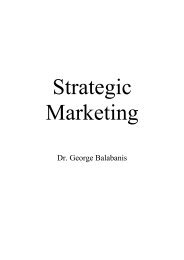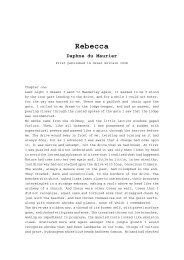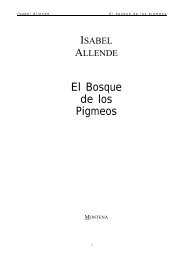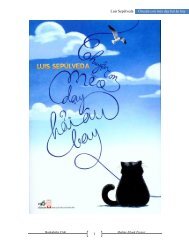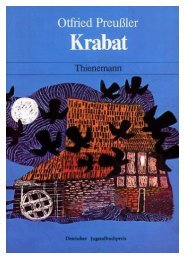Brand Failures
Brand Failures
Brand Failures
You also want an ePaper? Increase the reach of your titles
YUMPU automatically turns print PDFs into web optimized ePapers that Google loves.
Extension failures 95<br />
In the mid-1990s, the scale of his ambitions for the Virgin brand became<br />
clear. ‘I want Virgin to be as well-known around the world as Coca-Cola,’<br />
he was quoted as saying. So what better way to achieve this goal than to enter<br />
the cola market itself. He therefore decided to join forces with Cott Corporation,<br />
a Canadian private-label soda maker, to produce cola under the Virgin<br />
name. In doing this, he was placing his brand with what he referred to as the<br />
‘cola duopolists’. Namely, Coca-Cola and Pepsi.<br />
Immediately, the move raised eyebrows among those who knew the market<br />
well. ‘It would be easier to make a snowman in July in Florida than to take<br />
on Coke and Pepsi,’ observed John Sicher, publisher of the US trade publication,<br />
Beverage Digest. But Branson seemed to relish the challenge, launching<br />
the drink to the US market in spectacular style. He rode a vintage Sherman<br />
tank through New York’s Times Square, aiming fire at a huge Coca-Cola<br />
billboard. He also placed his own 40-foot Virgin Cola billboard right above<br />
the Times Square Virgin Megastore. ‘The signage alone was worth the rent<br />
of the entire building,’ he joked at the time. ‘The store is a bonus.’<br />
However, the new cola brand struggled on both sides of the Atlantic.<br />
Although it was priced 15–20 per cent lower than the two leading brands,<br />
not enough consumers were being won over. Part of the problem was<br />
distribution. Coca Cola and Pepsi managed to block Virgin from getting<br />
crucial shelf space in half the UK’s supermarkets. Meanwhile, Coke doubled<br />
its advertising and promotion budget. As Rob Baskin, Coca-Cola USA’s<br />
spokesman said: ‘We take all competition seriously.’<br />
Ultimately, Coca Cola and Pepsi’s hold on the market has proven too<br />
strong and Virgin Cola failed to make a serious dent in their worldwide sales.<br />
Even on Virgin’s home turf, the UK, the brand struggled to gain 3 per cent<br />
of the market and it has never made a profit.<br />
Lessons from Virgin Cola<br />
Strong brands depend on exploiting competitors’ weaknesses. ‘We often move<br />
into areas where the customer has traditionally received a poor deal, and<br />
where the competition is complacent,’ Branson once said, explaining<br />
Virgin’s brand strategy. However, Pepsi and Coca Cola are anything but<br />
complacent.<br />
Distribution is everything. If you can’t get the product on the shelves, it will<br />
never outsell its competitors.




